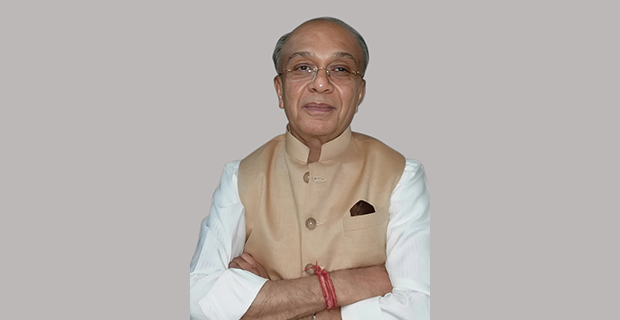“THE JOURNEY HAS BEEN ENRICHING”
Dr V.M. Bansal responds to questions from India Empire’s Consulting and Business Editor Yogesh Sood.
You’d a stellar career working for the Government and public-sector organizations following which you took over the reins of the NDIM. Please talk us through your journey in public life that started in 1971.
My journey has been very enriching. I was always very keen and eager to know more and more and tried to do things differently every day. Starting in 1971, that is now a long time back after my engineering degree, I started working with the industries set up by the family in the fields of spare parts, and electric and power cables. After that had long innings of tremendous experience with the government and public sector from 1974 to 2010.
While others often allege discrimination or injustice, I was always happy to have a change of job role as soon as it could happen. In the first 20 years of my career, I had about 15 different roles and postings. I was always looking for a change after about 8-10 months as I used to feel that my learning on that particular job had almost stopped.
Life has been very tough because I was perhaps the only officer of a public dealing organization like DDA who stayed in very senior positions as Secretary to the Vice Chairman, Director, Commissioner, Principal Commissioner, and Secretary and later as Advisor to the Lt. Governor for almost 28 long years, dealing one to one directly with every Chief Minister and the Prime Minister’s Office, with every Union Urban Minister and senior most bureaucrats of the Government of India. No other officer has ever stayed for so long in these positions of very high visibility.
While heading a private management institution of great repute, what is the perspective that you brought in through your years in the Government and public life?
As mentioned earlier, I was always eager to put new and different things into place. Not just willing but always restless to try different methods and routes to achieve faster and better outcomes. While in the Government, this style of my working was questioned by almost every colleague and superior officers since most of them were trained not to disrupt the status quo and not indulge in challenging initiatives which could possibly make them more accountable; this trait has been helping me tremendously in the education sector as we are an autonomous, standalone MBA institution approved by the Government of India. I encountered similar situations here as well almost every day in the beginning because I noticed that academia was very comfortable with a similar legacy and way of working and taking things easy. Challenges were whispered in my ears by senior academic colleagues that I should better change my style and fall in line with the academics’ way of working otherwise my professors would look for other avenues. This did deter my plans for about six months where after I could not resist myself anymore and got into practicing newer ways of teaching and learning, newer ways of assessment and evaluations, newer ways of faculty accountability, and newer ways of coming up to the total satisfaction of stakeholders. I must say that this journey, too, has been highly rewarding, and every professor happily moved in a new direction.











Comments.